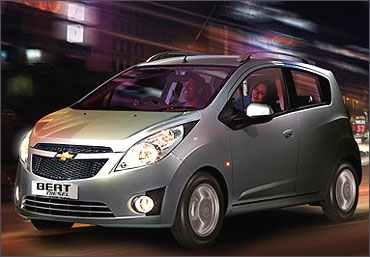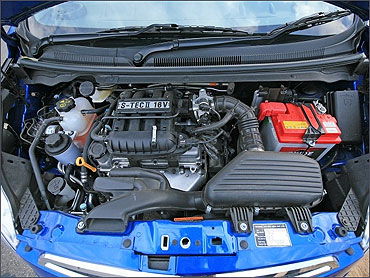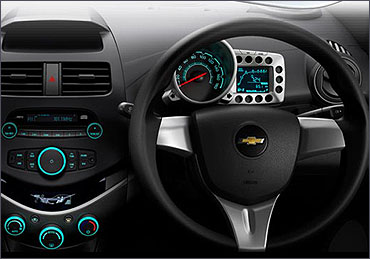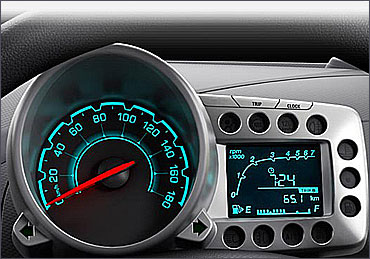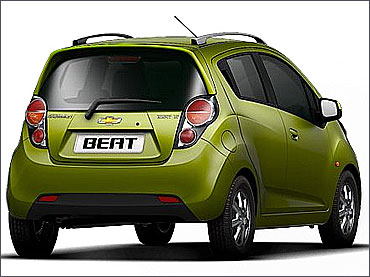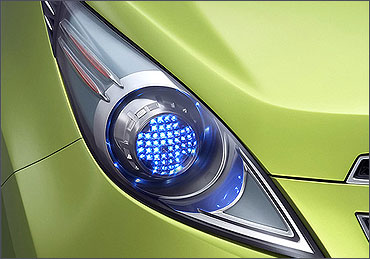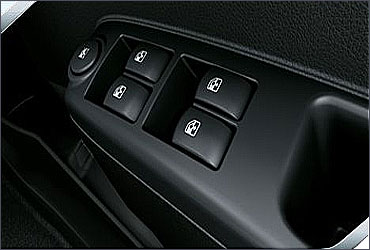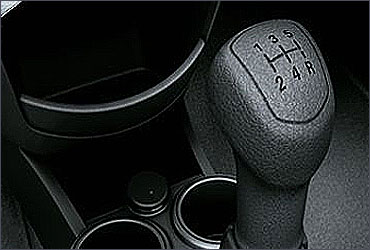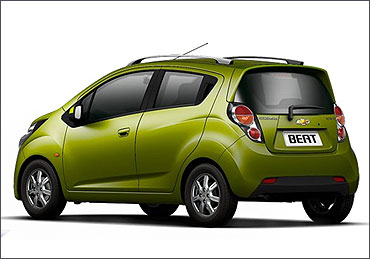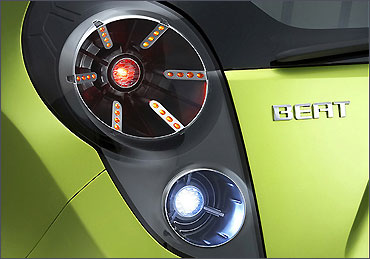 | « Back to article | Print this article |
What is the NEW Chevrolet Beat diesel like?
It's been a while since the first 'spy shot' of the Beat diesel was taken.
And then another and then another and eventually we saw those little Chevys almost everywhere, running with their red number plates on highways as well as city roads.
Well, with so many test mules running about, Chevrolet seemed hell-bent on getting the Beat diesel right.
For good reason too, since this is a first of sorts for General Motors - it's the company's first hatchback to receive a diesel engine.
And secondly, this car is touted to be Chevrolet's next big thing in India.
Click on NEXT for more...
What is the NEW Chevrolet Beat diesel like?
With petrol prices hitting the roof, the introduction of a cheap-to-buy and cheaper-to-run diesel hatch seems to be timely.
It's a no-brainer that you don't have to develop an all-new motor when you already have access to something that's tried-and-tested, that too something that's often raved about.
With its now-defunct association with Fiat, GM could source that famous 1.3 MultiJet diesel engine from the Italian marque.
That's right, the same engine that can be found under the bonnets of cars wearing Fiat, Tata and Suzuki badges.
Click on NEXT for more...
What is the NEW Chevrolet Beat diesel like?
But the Beat's motor was destined to be a tad different.
General Motors took one of the four cylinders out of the MultiJet in order to come up with something even more frugal - the Automotive Research Association of India (ARAI) arrived at an astounding figure of 24 kmpl under its test conditions.
Severe weight reduction is crucial to obtain better fuel efficiency and GM has incorporated a lighter crank and pistons, a plastic intake manifold along with a cylinder head crafted out of aluminium alloy to help achieve that goal.
A diesel motor is prone to vibes and more so for a three-cylinder heavy oil-burning engine.
Click on NEXT for more...
What is the NEW Chevrolet Beat diesel like?
To help quell these vibrations, the Chevy's 1.0 XSDE Smartech mill is fitted with six balance weights that are fitted onto the crankshaft.
The result is a 937cc 12-valve DOHC powerplant that puts out 57.8 bhp and 15.2 kg of torque.
Okay, so the numbers might not seem like much on paper, and they aren't on the road either, especially on the highway.
But the Beat TCDi is a brilliant urban car, with most of the torque coming in at an early 2,000 rpm and going till about 3,500 rpm.
Beyond that, all you get is the sound of the 12-valve triple wailing as it gets to a rather useless redline of about 4,800 rpm.
Click on NEXT for more...
What is the NEW Chevrolet Beat diesel like?
But the way the white coats have tuned this motor low down the rev range is remarkable.
You can chug along on flat city streets at 45-odd kmph in top gear without any troublesome snitching from the motor.
For inclines, however, you need to build up adequate momentum, failing which severe downshifting will be required to get you and the Beat to the top.
Click on NEXT for more...
What is the NEW Chevrolet Beat diesel like?
The Beat diesel seems to be happiest in the 70-90 kmph zone, again proving how suitable this car is in the city where speeds rarely ever hit the tonne.
It has the capability to go to about 140 kmph, I reckon, but it will take its own sweet time to get there and not without plenty of protest.
Overtaking too needs to be a very precise and calculated procedure in the Beat TCDi, requiring timely downshifts and an ample time frame to complete the exercise safely.
Forget about simply flooring the pedal and letting the car do the rest; no way.
Click on NEXT for more...
What is the NEW Chevrolet Beat diesel like?
On the move, the steering feel of the Beat is taut.
The older hydraulic power steering system has been given the boot, and in its place, a new electronic power steering unit now does duty.
The steering assistance is well weighted, giving just the right amount of load when the car picks up speed, feeling neither flaccid nor overwhelming.
Click on NEXT for more...
What is the NEW Chevrolet Beat diesel like?
Another aspect of the Beat diesel that is spot-on is the ride quality.
Even the deepest potholes in Goa couldn't faze the Beat, and despite me tackling some by strategically aiming at them, the two gentlemen at the rear kept their smiling faces on and no expletives were uttered either.
And no, in case you were wondering, they weren't GM employees.
Despite the tyre section being reduced from the 170 of the petrol to 165 for the diesel, the car is sticky around corners and agile enough to explore gaps in the traffic.
Click on NEXT for more...
What is the NEW Chevrolet Beat diesel like?
The interior dimensions and layout remain the same for the diesel Beat as those in its petrol-burning sibling.
That means the car is just about good enough for four average-sized adults.
When I was driving, however, another journalist at the back had to keep prodding me to take my seat ahead.
I ultimately did that and he could feel his knees once again! But frankly, I am not exactly small built.
Click on NEXT for more...
What is the NEW Chevrolet Beat diesel like?
General Motors would have you know that the Beat TCDi competes with the Ford Figo with the Duratorq motor.
But with the Figo being a much better performer and a roomier car than the diesel Beat, I think it's the Tata Indica eV2 that should be in GM's crosshairs.
The company hasn't revealed the prices yet, but I expect the Beat TCDi to be priced in the region of Rs 425,000 to Rs 500,000, ex-showroom, Mumbai.
If, however GM proves me wrong and sets the ex-showroom prices to begin below Rs 400,000, it definitely has a car here that will sell in numbers that far exceed the company's current production capacity.
The writer was on a media invite from Chevrolet to test drive the Beat diesel
